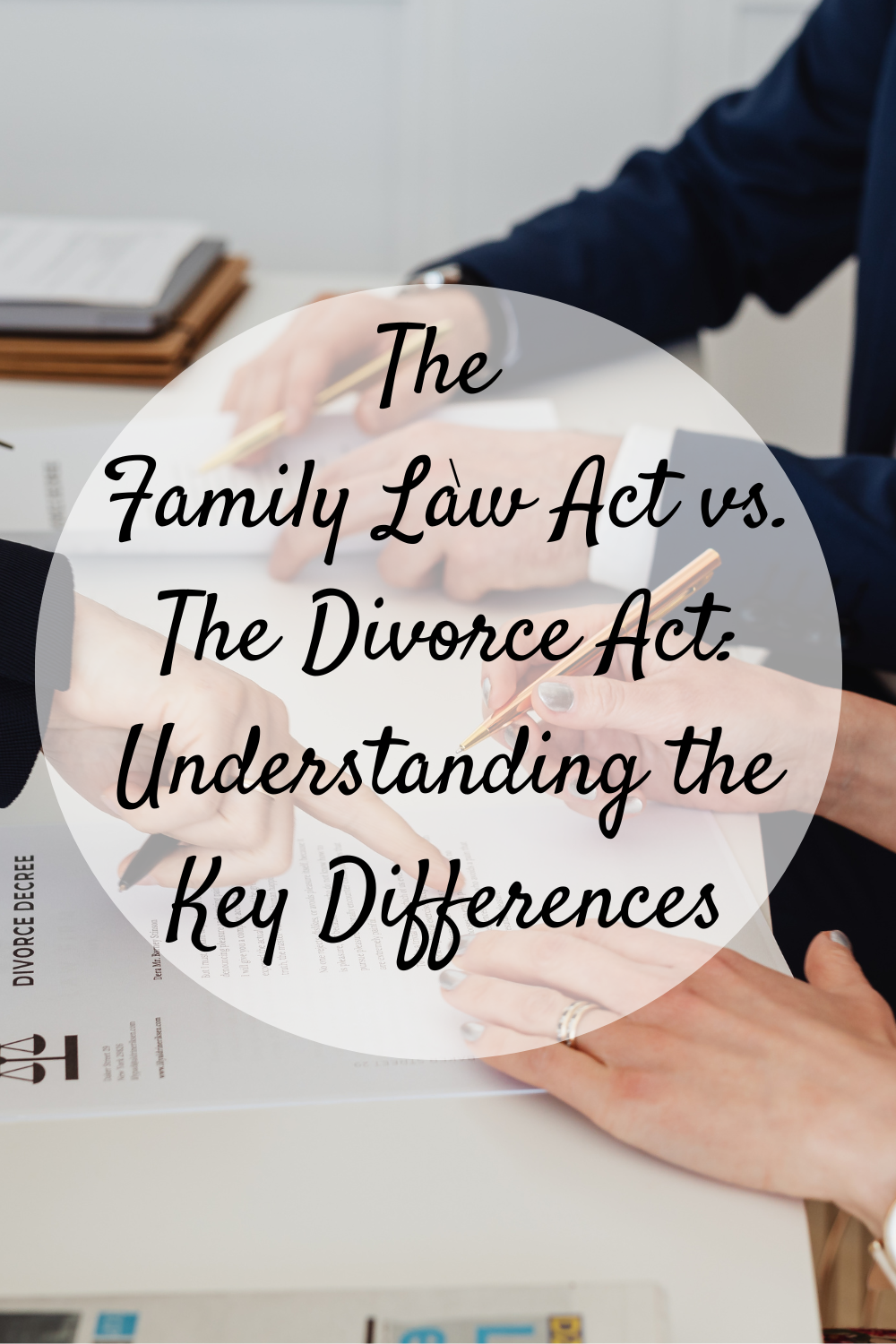
When a family is going through the separation process, meaning the spouses, it can be a traumatic time for everyone involved.
Adding to the stress is whether you should follow the guidelines set down in the Family Law or Divorce Act. Yes, the two terms are often used interchangeably, and this can be confusing to deal with. Just like there are key aspects of the Family Law Act, the same applies to the Divorce Act. To help provide some clarification, here’s a closer look at the two legal rules.
A Closer Look at the Family Law Act
The Legislation of Ontario passed the Family Law Act in 1990, which works to protect the rights of spouses and their dependents during a divorce. This includes their rights regarding spousal and child support, property division, inheritance, and agreements relating to separations and prenuptial contracts.
In 1999, the Family Law Act was expanded to include the rights of same-sex couples. In other words, the Family Law Act applies to all married spouses both legally wed and common-law, regardless of their gender. The Family Law Act is rather broad, it covers pretty much every aspect of family connections including:
- Child custody and parental rights including their access. For example, one parent can’t prohibit the other parent from seeing the shared child without a court order.
- Child protection
- The division of shared property during a separation or divorce
- Child and spousal support
- Parentage and adoption
The Act also covers any relief applications filed on a dependent’s behalf.
What Does the Divorce Act Cover
While the Family Law Act covers a broad range of topics, the Divorce Act is a little more limited in scope. Divorce Law follows a set of rules and regulations spouses must follow as they go through and complete a divorce. Some of the aspects covered under the Divorce Act are:
- Determining the jurisdiction of the divorce. In other words, the Act helps determine where a couple files their petition for a divorce.
- Child and spousal support orders
- Provisional orders, which can include deciding on child custody arrangements to some asset division.
As you can see, sometimes the two acts cover the same aspects but there are also a few key differences.
Family Law Act vs the Divorce Act
At first glance, the two acts can seem fairly similar. In fact, you’re correct. The Family Law and Divorce Acts do overlap in some key aspects. However, there are occasions when you want to use the rules and regulations contained in one act over another.
If you and your spouse never got around to getting married legally, in other words, you’re in a common-law marriage, you’ll follow the Family Law Act. This applies even if your common-law spouse is the same or opposite sex. Remember, in 1999 the Family Law Act was ratified to include same-sex couples.
Couples who are legally married have options, and they can use either act, it really doesn’t matter. Yes, the Divorce Act also applies to same-sex couples, just like the Family Law Act. A quick clarification. The law considers a couple legally married when the union is recognized by the government.
You can be married in a religious facility and still only be considered common-law if you neglect to file your marriage license with the government. If you’re only married in the eyes of the church and not the government, you need to follow the rules outlined in the Family Law Act.
Okay, so let’s sum up when to use one or the other statute. If you’re legally married and it’s recognized by the government, you can use either statute. If your union isn’t recognized by the government, you can only use the Family Law Act.
What about when children are involved? Which statute should you use? The answer really isn’t clear here, especially since both laws cover the same key aspects like child support, custody agreements, and even protection from an abusive parent.
However, the Family Law Act may make it easier to address issues concerning the child’s welfare. In a situation like this, it’s almost always best to ask an attorney specializing in family law for advice.
If you’re wondering which statute to follow when you’re dividing up marital assets. Guess what? Either statute covers property division, but the Family Law Act may provide a little more clarification.
Talk to an Attorney About the Two Statutes
Chances are, the Family Law Act will provide the most guidance, except during the divorce. When it comes to other details like support, custody, and property division, Family Law typically covers these key aspects.
To guarantee that you have a clear understanding of each provision, it’s best to consult with an experienced family law attorney. They can provide personalized advice and ensure that your rights and interests are protected throughout the legal process.





Leave a Reply